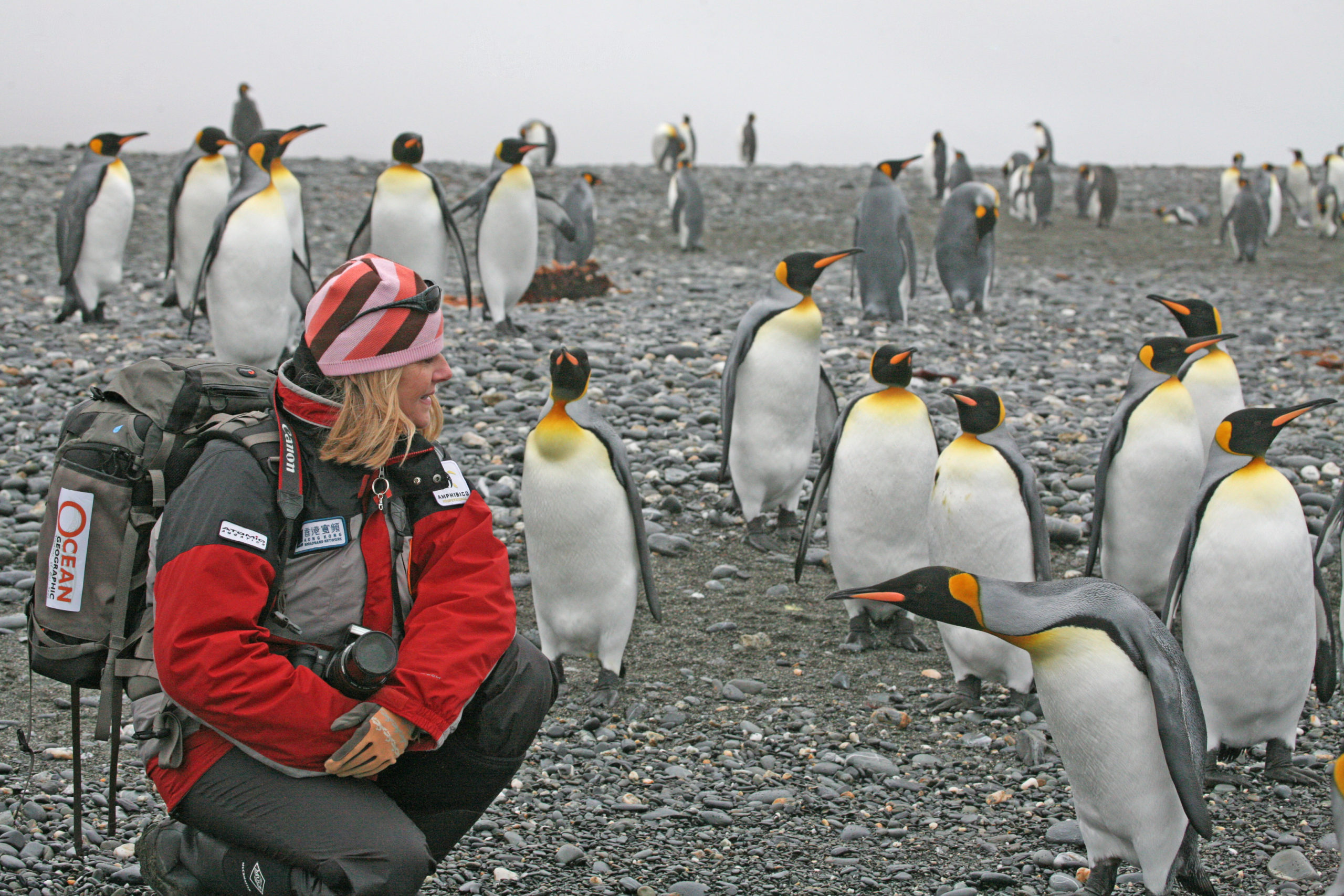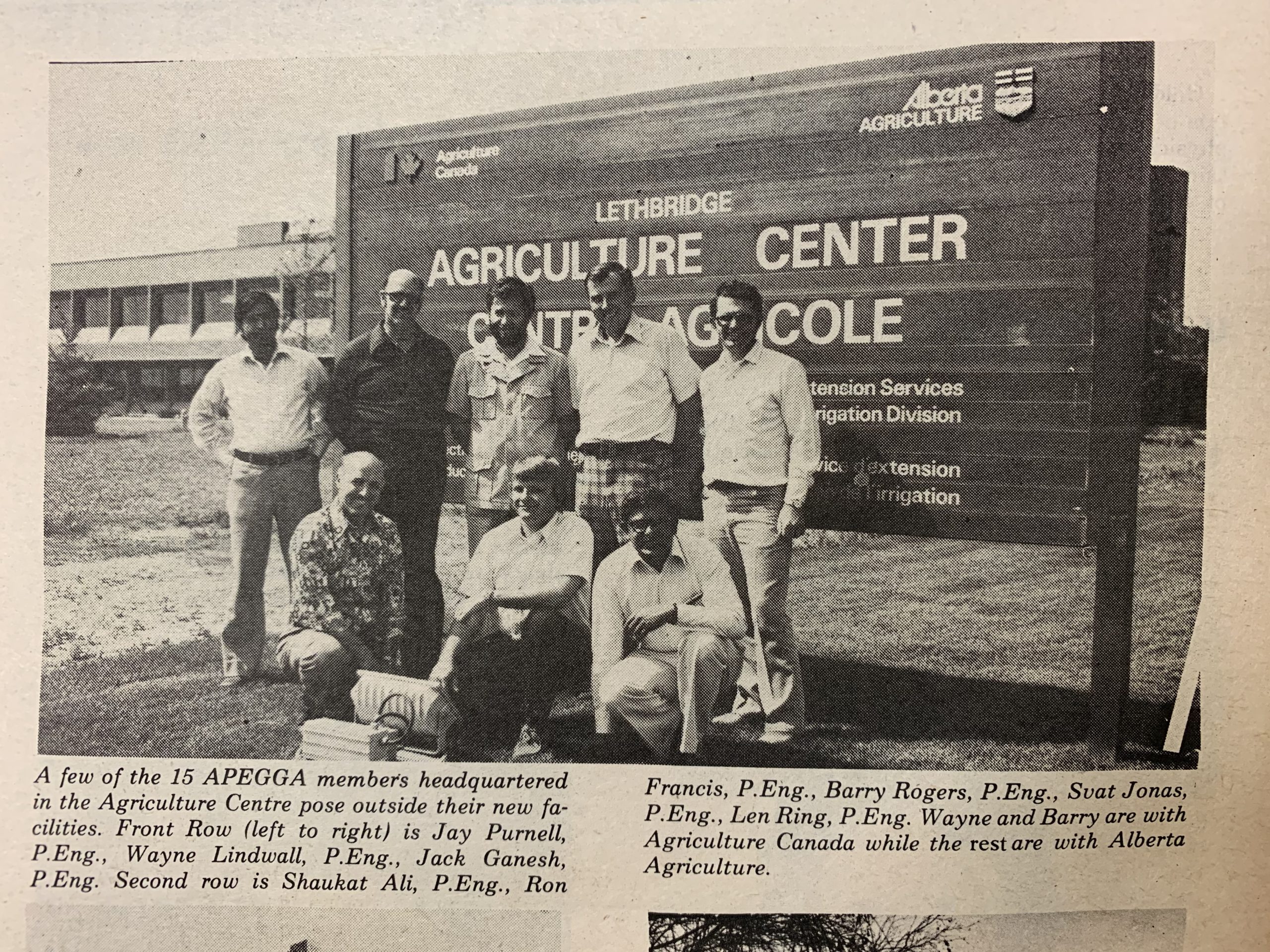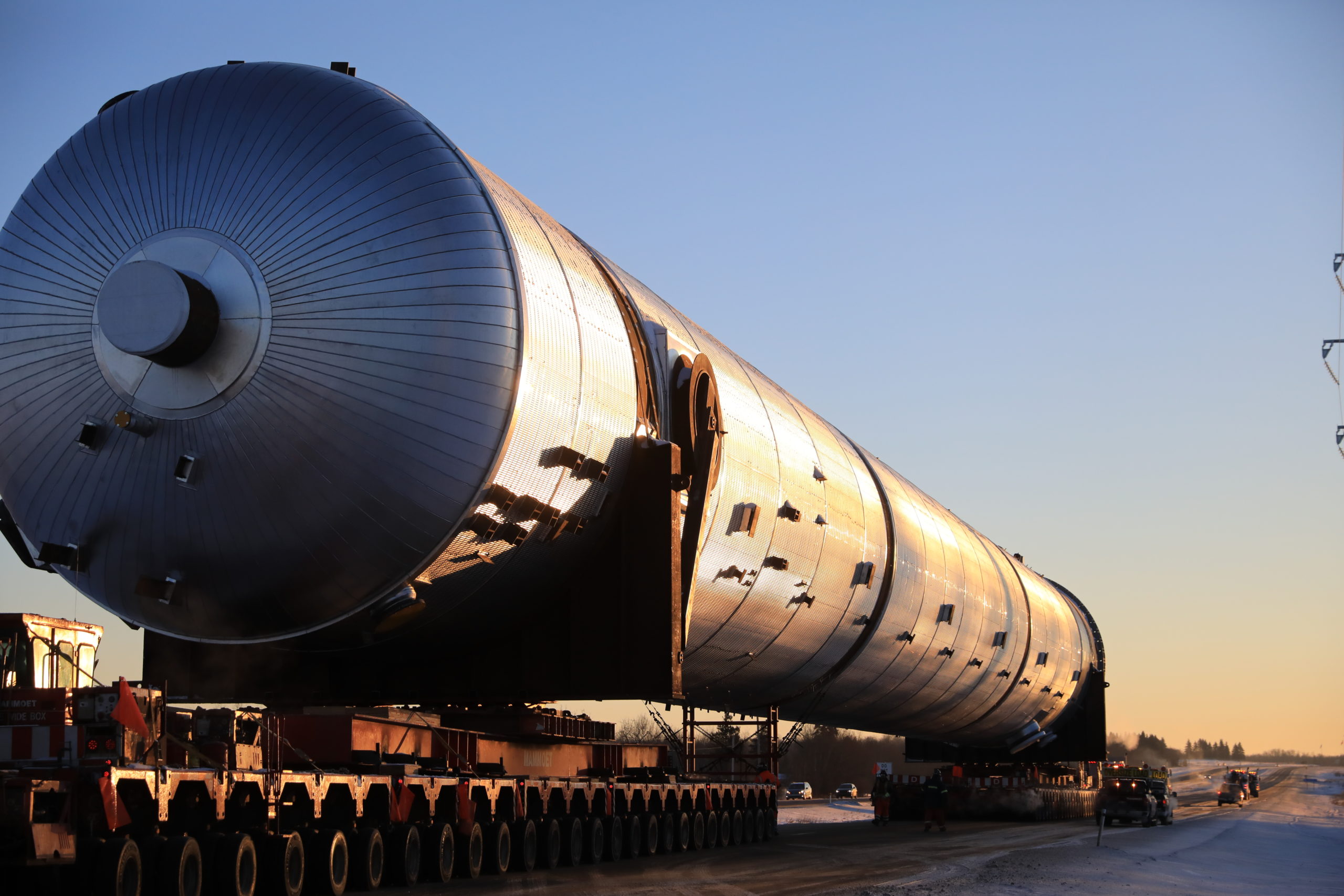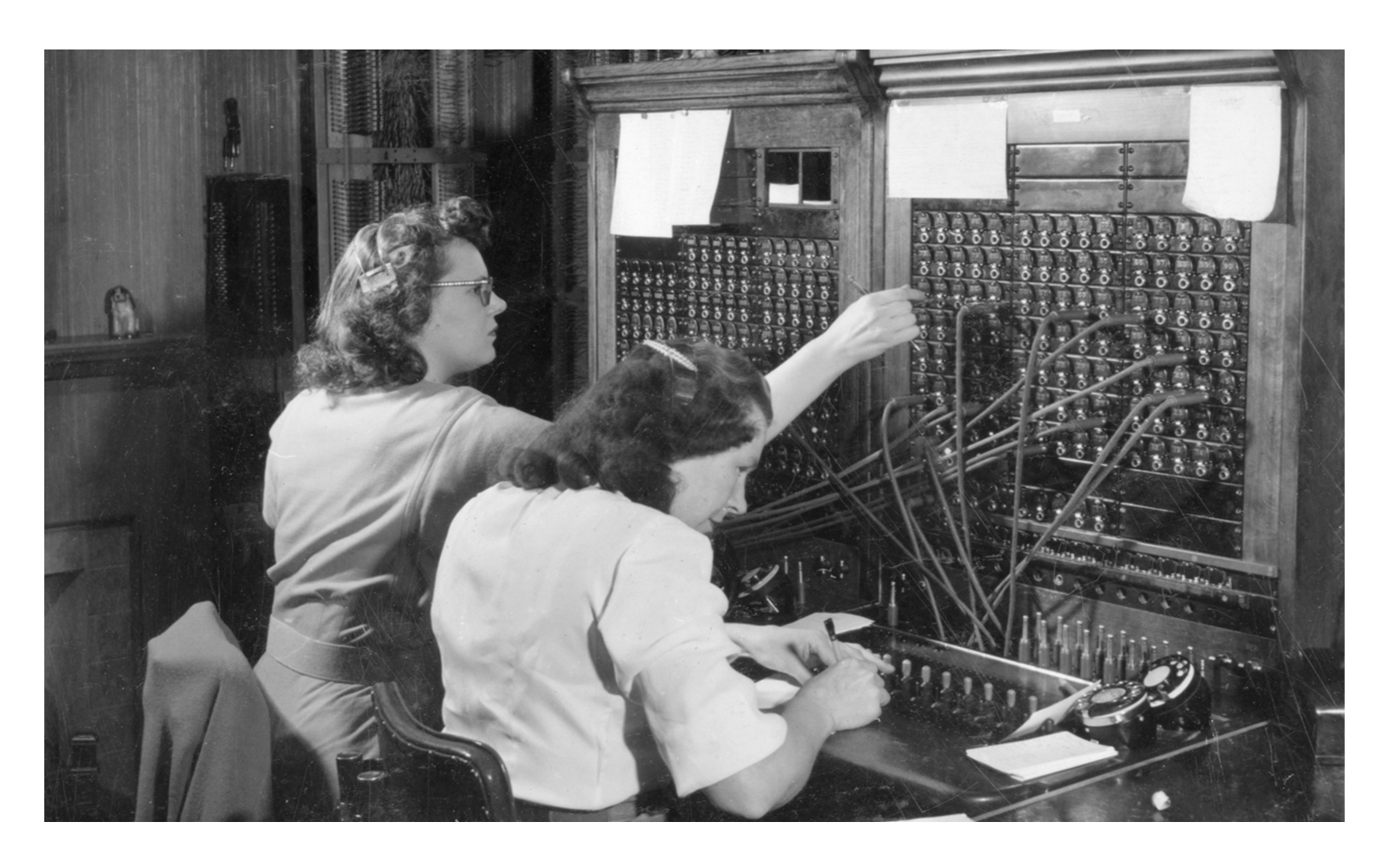Photo courtesy of Stephen Henshall, UK
Sea women combine scientific research with Indigenous knowledge to tackle climate—and societal—change in the Arctic
Snorkelling with orcas and humpback whales in icy arctic waters. Getting up close and personal with polar bears, narwhals, and belugas. Watching the aurora borealis dance across the northern sky.
It sounds like a thrilling adventure, but for the Sedna Epic Expedition’s sea women, it’s also a life-changing opportunity to build a better future.
Their mission, explains expedition leader Susan R. Eaton, P.Geol., P.Geoph., is to bring global attention to melting glaciers and disappearing sea ice in the Arctic, illustrating how it’s impacting the ecosystem and the Indigenous peoples who live there.
Since 2014, Eaton—a professional geologist and geophysicist—has led four all-women expeditions to the world’s Arctic regions, from northern Labrador and Nunavut, across the Davis Strait to western Greenland, and on to Iceland and, most recently, Norway.
The sea women—as they call themselves—explore the Arctic via expedition vessels equipped with scuba diving equipment and rigid–hulled inflatable boats, allowing them to spend much of their time scouting, documenting, and recording disappearing sea ice levels.
“Climate change has a human face in the Arctic,” says Eaton. “In our own country, Inuit are suffering, in real time, because of the adverse impacts of climate change.”
Oceans cover more than 70 per cent of the planet and they’re rapidly warming and acidifying, she says. And ocean change, she points out, drives climate change on the planet.
“The Sedna Epic is unique in that we’re working collaboratively, at the community level, with girls and women on climate change, ocean change, and societal change, all of which are interlinked,” says Eaton.
To date, more than 85 Indigenous and non-Indigenous women aged 16 to 78 have participated in Sedna’s four arctic dive and snorkel expeditions. They’ve included ocean explorers, scientists, artists, historians, educators, adventurers, medical professionals, scuba divers, and Indigenous women who live in these circumpolar regions.
In addition to conducting ocean research, Eaton and Sedna’s sea women run ocean mentorship programs for Inuit girls, which include teaching them snorkelling and scuba diving skills. Through Sedna’s ocean knowledge sharing and mobilization program—which involves touch aquariums temporarily housing sea critters and underwater–robot–building camps—the sea women have brought the ocean to eye level for more than 1,000 Inuit youths, girls, and elders in Labrador, Nunavut, and Greenland.
Susan R. Eaton, P.Geol., P.Geoph. uses a diver propulsion vehicle to navigate pack ice off of Torngat Mountains National Park, northern Labrador
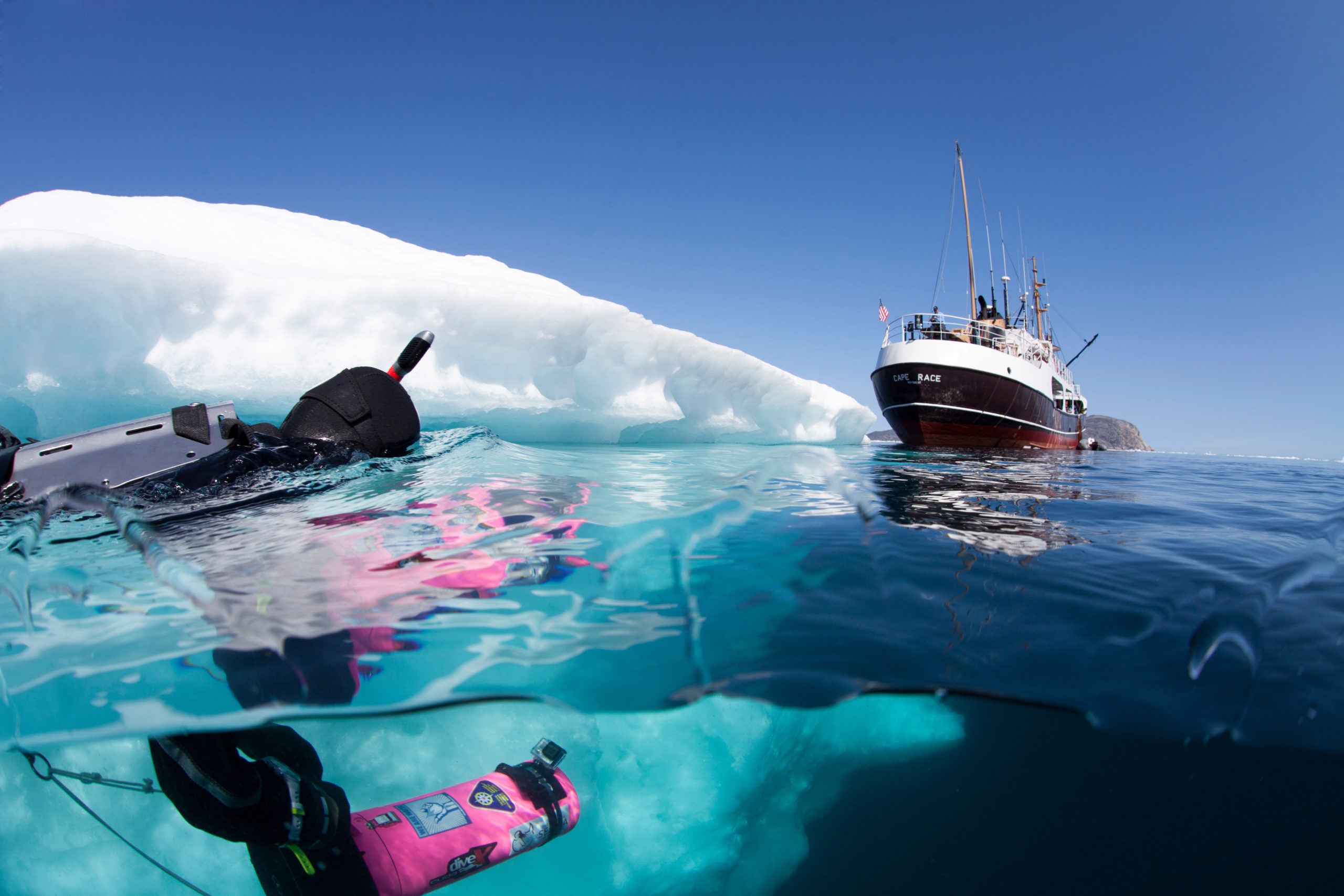
Photo courtesy of sednaepic.com – Jill Heinerth
Eaton will lead two back-to-back expeditions to northern Norway in November 2020 and one during the summer of 2021, when team Sedna will return to the High Arctic to continue its scientific research and run its ocean knowledge sharing and mobilization program.
Eaton is no stranger to travelling to the far corners of the Earth for science.
During the past decade, she’s been to Antarctica three times to study the interplay of plate tectonics, oceans, glaciers, climate, and life, with support from American and Canadian energy companies and professional geoscience associations, including APEGA.
Before becoming a polar explorer, Susan was an avid scuba diver who gained her certification at the age of 16. In March 2020, she will be inaugurated into the Women Divers Hall of Fame.
Susan R. Eaton emerges from a Bell CH-136 Griffon helicopter. When the sea ice Susan was camping on collapsed on the northern tip of Baffin Island, the Canadian Armed Forces mounted a Search and Rescue (SAR) operation in Canada’s High Arctic.
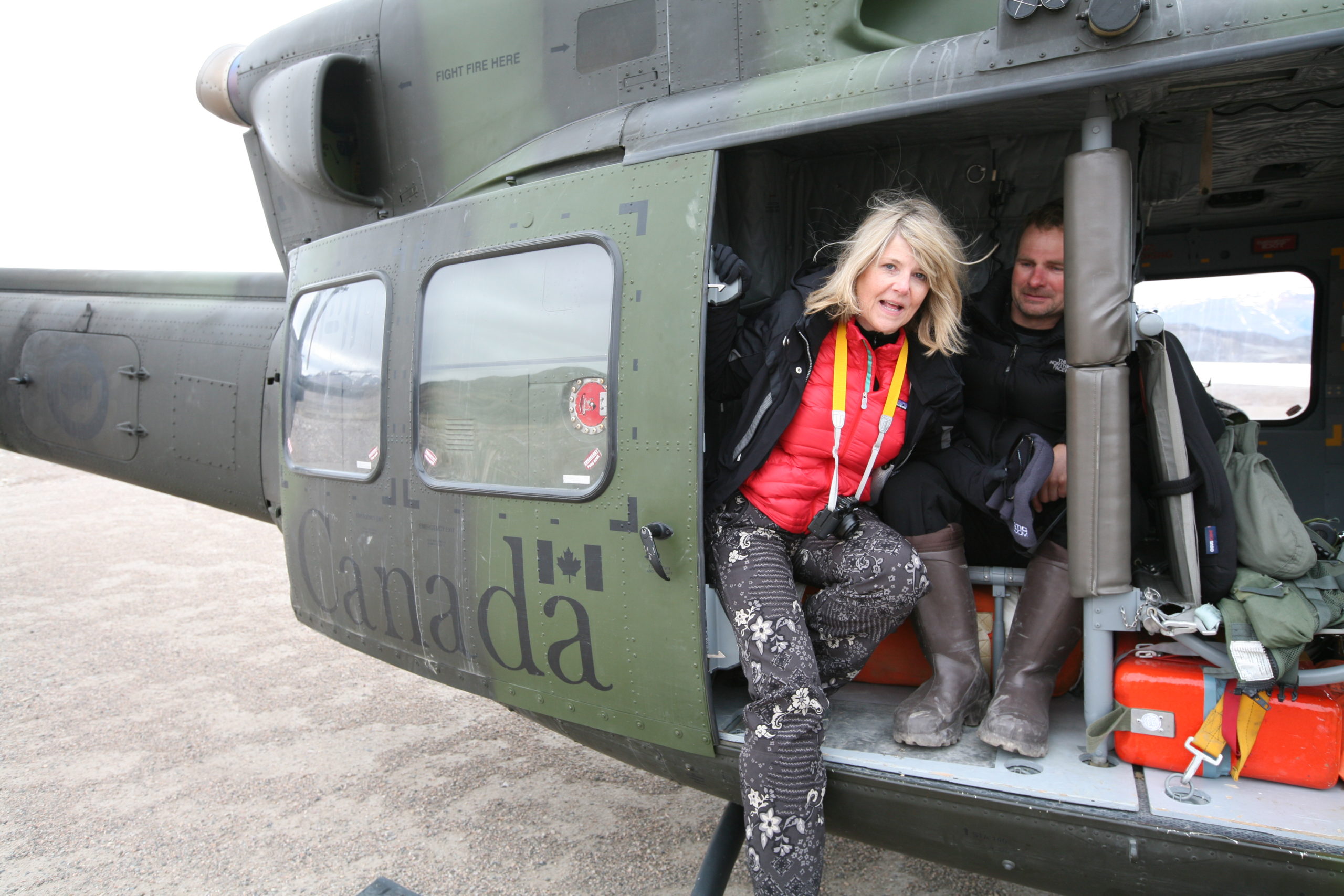
Photo courtesy of Susan R. Eaton
Eaton spent most of her career working in the oil and gas industry. She also worked as an on-camera CBC television reporter on the provincial news show in Newfoundland and Labrador. Yes, you read that right.
How did a geoscientist become a reporter? Let’s back up a little.
Born in Nova Scotia, Eaton earned an honours bachelor of science degree in geology and biology from Dalhousie University in 1980, starting her oil and gas career in Calgary and then Ottawa. When the price of oil crashed in 1986, Eaton went back to school, earning an honours bachelor of journalism degree from Carleton University with plans to become a science and technology reporter.
Following her contract at CBC-TV, Eaton returned to school, this time travelling overseas to complete a master’s degree in petroleum geology, specializing in geophysics, from Imperial College’s Royal School of Mines at the University of London.
Eaton returned to Calgary in 1988, where she built a 30-plus–year career working on oil and gas projects that took her around the globe. In parallel, she followed her passion for journalism, working as a freelance writer specializing in reporting on oil and gas, renewable energy, business, water, the environment, space, adventure travel, and polar expeditions.
“Bottom line, the project management skills that I developed during my oil and gas career have enabled me to lead teams of ocean professionals and to finance and execute my own Arctic expeditions,” notes Eaton.
In 2015, the Royal Canadian Geographical Society named Eaton one of Canada’s top–100 modern–day explorers and trailblazers. Her ocean educational work also earned her a nod, in 2018, from the Ocean Geographic Society, which called her one of the world’s most influential women ocean leaders.
Proving you never know where your career—or your passion—might take you.
Susan R. Eaton, FRCGS, is featured, along with the Sedna Epic Expedition’s accomplished sea women, in GARMIN’s "Women of Adventure" series!
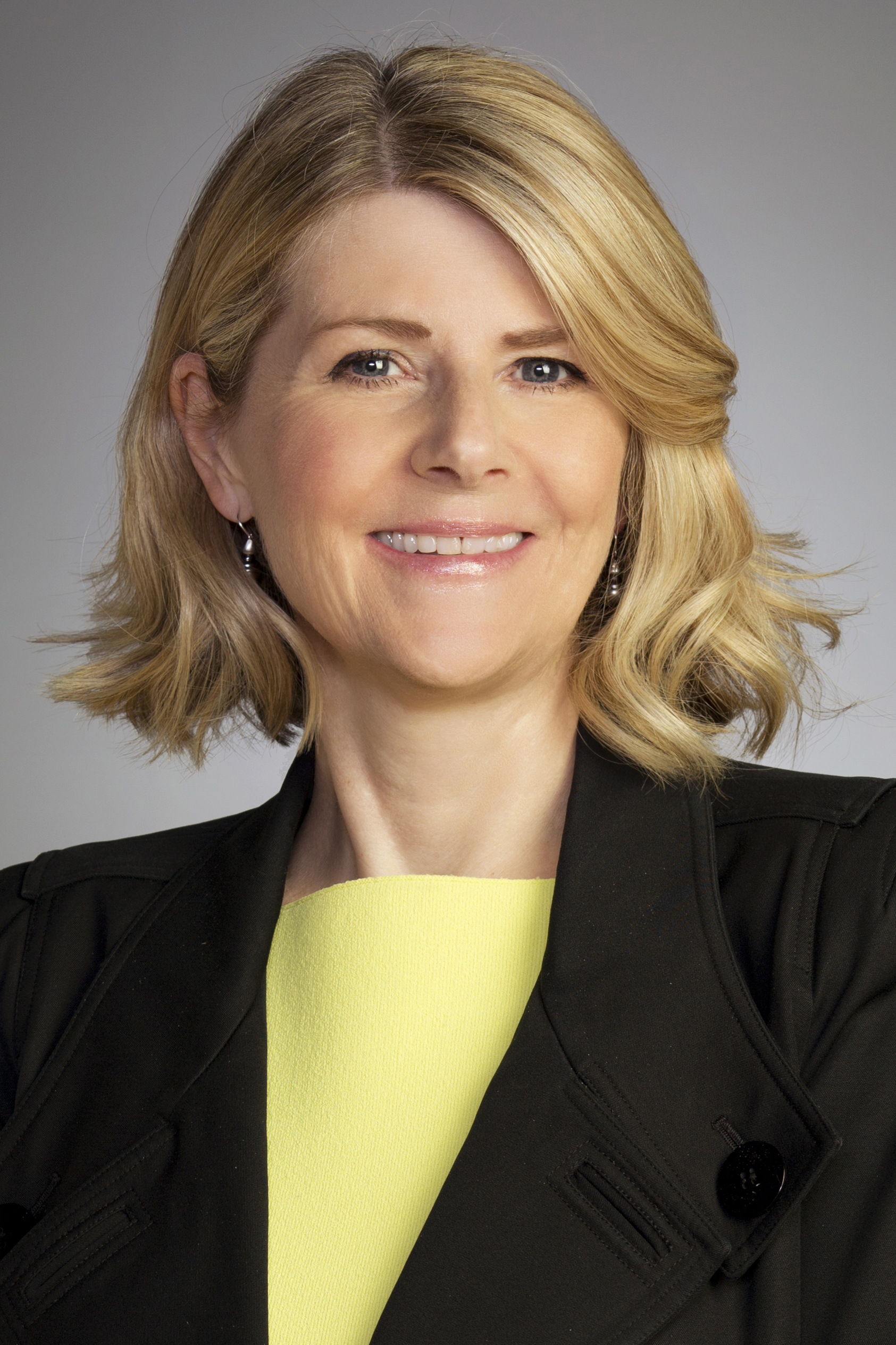
Susan R. Eaton, P. Geol., P. Geoph., M.Sc., B.Sc. Hon., B.J. (Journalism) Hon., FRCGS
